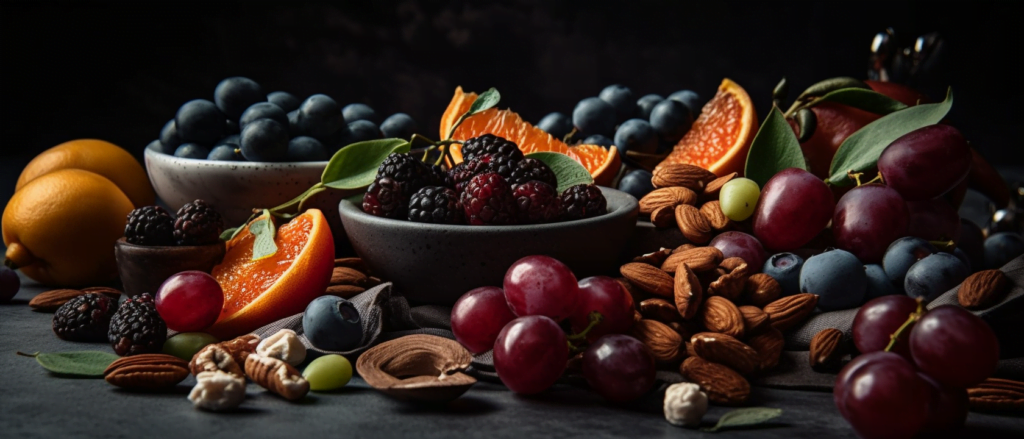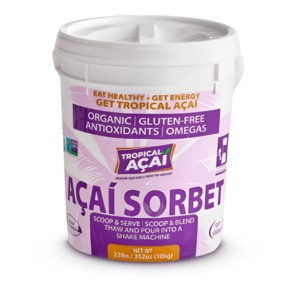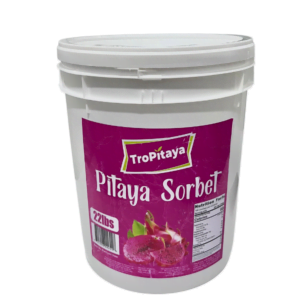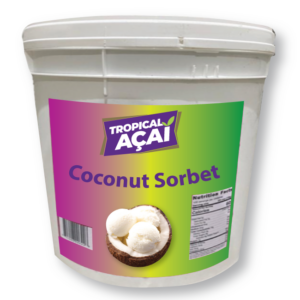Introduction
Antioxidants are natural compounds that help to protect your cells from the damaging effects of free radicals. Free radicals are unstable molecules that can cause damage to cells, leading to chronic diseases and aging. Antioxidants neutralize free radicals, reducing their harmful effects.
Antioxidants are crucial in neutralizing free radicals, molecules that can cause cellular damage. Their presence in everyday foods helps maintain the body’s balance and overall health.
What are Antioxidants?
Antioxidants are natural compounds that help to protect your cells from the damaging effects of free radicals.
Importance of Antioxidants in Maintaining Good Health
Antioxidants are crucial for maintaining good health. They have been shown to have a wide range of health benefits, including reducing the risk of chronic diseases such as other disease, diabetes, and cancer. They can also improve skin health, boost the immune system, and protect against age-related cognitive decline.
Brief History of the Discovery of Antioxidants
The discovery of antioxidants dates back to the early 20th century when scientists first observed the beneficial effects of plant compounds on human health. For example, in the 1940s, researchers discovered that vitamin C could prevent scurvy, a disease caused by a deficiency in vitamin C. Since then, numerous studies have been conducted on antioxidants, revealing their essential role in maintaining good health.
Overview of What the Article Will Cover
This article will cover everything you need to know about antioxidants and their benefits for your health. We will explore different types of antioxidants, foods rich in antioxidants, and the health benefits of antioxidants. Additionally, we will discuss the importance of acai as a superfood particularly rich in antioxidants and how to incorporate antioxidants into your diet.
What are Antioxidants?
Antioxidants are natural compounds that can help to protect your cells from the damaging effects of free radicals. Free radicals are unstable molecules that can cause damage to cells, leading to chronic diseases and aging. Antioxidants neutralize free radicals, reducing their harmful effects.

Definition of Antioxidants
Antioxidants are molecules that can inhibit the oxidation of other molecules, which can cause the formation of free radicals. They can be found in various foods, including fruits, vegetables, nuts, and seeds.
Explanation of Free Radicals and Oxidative Stress
Free radicals are unstable molecules that can cause damage to cells, leading to chronic diseases and aging. They are formed when oxygen interacts with other molecules in the body, such as during metabolism or exposure to environmental toxins. When free radicals accumulate, they can cause oxidative stress, leading to cell damage and inflammation.
How Antioxidants Combat Oxidative Stress
Antioxidants combat oxidative stress by neutralizing free radicals. They do this by donating an electron to the free radical, which stabilizes it and prevents it from causing further damage to cells.
Different Types of Antioxidants
Several antioxidants include vitamins C and E, beta-carotene, selenium, and flavonoids. Each type of antioxidant works slightly differently to protect cells from free radical damage.
Foods Rich in Antioxidants
Many foods contain antioxidants, including fruits, vegetables, nuts, and seeds. Some of the best sources of antioxidants include berries, citrus fruits, dark chocolate, spinach, and kale.
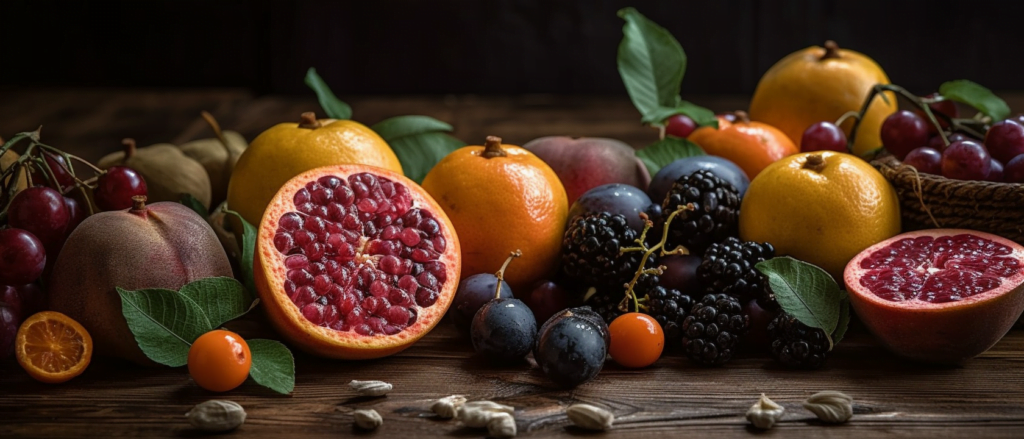
Here is a list of fruits that are rich in antioxidants:
- Acai berries
- Blueberries
- Strawberries
- Raspberries
- Blackberries
- Cherries
- Pomegranates
- Goji berries
- Cranberries
- Grapes (especially red and purple varieties)
- Apples (especially the skin)
- Oranges
- Kiwi
- Pineapple
- Mango
- Papaya
- Guava
- Watermelon (especially the rind)
- Tomatoes
- Avocado.
These fruits contain high levels of vitamins, minerals, and other nutrients that help protect the body from oxidative stress and other forms of damage caused by free radicals. Therefore, incorporating these fruits into your diet can help promote overall health and well-being.
Acai berries are exceptionally high in antioxidants, including anthocyanins and flavonoids, which can help reduce inflammation, protect against cellular damage, and promote overall health.
Acai: An Antioxidant-rich Superfood
The Acai Berry is a superfood that is particularly rich in antioxidants. It is a type of berry native to the Amazon rainforest and has been used for centuries by indigenous people for its health benefits. Acai is particularly rich in anthocyanins, a type of flavonoid shown to have potent antioxidant effects.
The Acai Berry: A Superfood Packed with Antioxidants
Acai berries are a superfood that is particularly rich in antioxidants. Here’s everything you need to know about acai berries:
Origin and Characteristics of Acai Berries
Acai berries are a type of fruit that is native to the Amazon rainforest in Brazil. They are small, round, and purple and grow on acai palm trees. Acai berries have been used for centuries by indigenous people in the Amazon for their health benefits.

Nutritional Profile of Acai Berries
Acai berries are a rich source of nutrients, including vitamins A, C, and E, and minerals such as calcium, potassium, and magnesium. They are also high in fiber and contain healthy fats, including omega-3 and omega-6 fatty acids.
Acai berries are rich in antioxidants, contain healthy fats and fiber, and are low in sugar. They offer a unique nutritional profile that supports both physical and mental health.
Antioxidant Properties of Acai Berries
Acai berries are particularly rich in antioxidants, including anthocyanins, a type of flavonoid that gives acai berries their purple color. Studies have shown that acai berries have potent antioxidant effects, and they have been found to have higher antioxidant activity than other popular antioxidant-rich fruits such as blueberries and cranberries.
Comparing Acai to Other Antioxidant-rich Fruits
While many fruits are rich in antioxidants, acai berries stand out due to their exceptionally high levels of anthocyanins. Other antioxidant-rich fruits include blueberries, cranberries, pomegranates, and strawberries. Each of these fruits contains different types and levels, making eating various fruits and vegetables essential to get a broad range of antioxidants.
Benefits of Acai Berry Antioxidants
Acai berries are a superfood packed with antioxidants, making them an excellent addition to any diet. Here are some of the potential health benefits of acai berry antioxidants:
Boosting the Immune System
Acai berries are rich in antioxidants, which can help to boost the immune system by protecting against oxidative stress and inflammation. This can help to reduce the risk of infections and illness.
Promoting general health
Acai berries may also help to promote general health by reducing the risk of other disease. This is because the antioxidants in acai berries can help to reduce inflammation and protect against oxidative stress, which can contribute to the development of other disease.
Supporting Brain Health
Acai berries may also support brain health by protecting against age-related cognitive decline. In addition, studies have shown that they can help reduce oxidative stress in the brain, improving memory and cognitive function.
Anti-Aging Properties
Acai berries are also believed to have anti-aging properties. The antioxidants in acai berries can help to protect against the damaging effects of free radicals, which can contribute to aging and the development of age-related diseases.
Improving Digestion and Gut Health
Acai berries are high in fiber, which can help to improve digestion and promote gut health. A healthy gut is essential for overall health, and a diet high in fiber can help promote healthy gut bacteria growth.
While acai berries are a superfood particularly rich in antioxidants, it’s important to remember that they are just one part of a healthy diet. Eating various fruits, vegetables, nuts, and seeds is essential for getting multiple antioxidants and other vital nutrients.
Regularly consuming antioxidant-rich foods can improve general health and immunity and reduce the risk of chronic diseases. They are vital for maintaining youthful skin and preventing cellular damage.
Incorporating Acai Berries into Your Diet
Acai can be easily included in daily diets through smoothies, bowls, or a natural supplement. Its versatility makes it a convenient and delicious way to boost antioxidant intake.
Acai berries are a delicious and nutritious addition to any diet. Here are some ways to incorporate acai berries into your diet:
Acai Bowl Recipes
Acai bowls are a popular way to enjoy the health benefits of acai berries. Blend frozen acai berries with other fruits and toppings, such as bananas, strawberries, granola, and honey, to make an acai bowl. The tasty Acai bowls are a refreshing and healthy breakfast or snack option.
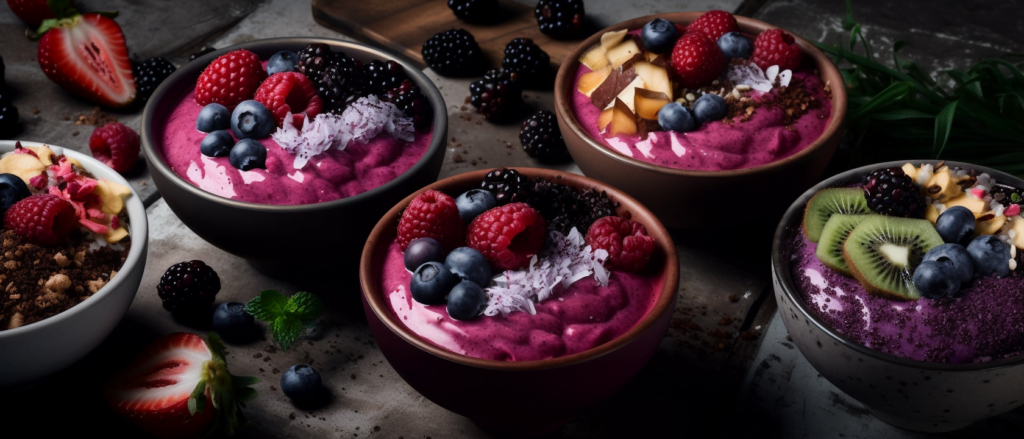
Acai Smoothies
Another way to enjoy acai berries is by adding them to smoothies. Blend frozen acai berries with other fruits, such as bananas and blueberries, and add a liquid like almond milk or coconut water for a delicious and nutrient-rich smoothie.
Frozen acai packs from Tropical Acai offer a convenient and nutritious way to enhance your smoothies with flavor and health benefits. To use them, start by running the frozen pack under warm water for a few seconds to slightly soften it, which makes it easier to break apart and blend. Then, cut the pack open and add the frozen acai pulp to your blender. Combine it with your choice of liquid (such as almond milk, coconut water, or juice) to help it blend smoothly. For a nutrient-packed smoothie, you can add other ingredients like bananas, berries, spinach, and protein powders or nut butter to complement the acai’s natural antioxidants, fiber, and healthy fats.
Creating smoothies with Tropical Acai’s frozen packs is not only about enjoying a delicious treat; it’s also a step towards a healthier lifestyle. Acai berries are known for their high antioxidant content, which can help combat free radicals and support overall health. By incorporating these frozen packs into your smoothies, you’re not just enjoying acai’s unique, slightly tart, and berry-like flavor; you’re also infusing your diet with essential nutrients.
Whether you’re making a post-workout refreshment or a nutritious breakfast, acai smoothies can be a delightful way to add variety and boost your intake of vitamins and minerals. Plus, these frozen packs’ ease of use and versatility make them a perfect fit for any smoothie recipe, allowing you to get creative with your blends.
Acai Supplements
If you don’t have access to fresh or frozen acai berries, you can also find acai supplements in capsule or powder form. Be sure to choose a high-quality supplement from a reputable source.
Tips for Selecting and Storing Acai Berries
When selecting acai berries, look for berries that are deep purple in color and free of mold or damage. Frozen acai berries can be stored in the freezer for up to 6 months, while fresh acai berries should be consumed within a few days of purchase. To prepare fresh acai berries, rinse them and remove the pit before using them.
Incorporating acai berries into your diet is an easy and delicious way to boost your antioxidant intake and improve overall health.
Other Antioxidant-Rich Foods to Include in Your Diet
While acai berries are a great source of antioxidants, many other foods are rich in these essential compounds. Here are some other antioxidant-rich foods to include in your diet:
Berries: Blueberries, Raspberries, and Blackberries
Berries are a rich source of antioxidants, particularly anthocyanins. Blueberries, raspberries, and blackberries are some of the best sources of antioxidants among all fruits. They are also high in fiber and low in calories, making them an excellent addition to any diet.
Leafy Greens: Spinach, Kale, and Collard Greens
Leafy greens are another excellent source of antioxidants. For example, spinach, kale, and collard greens are exceptionally high in vitamins A and C and other essential antioxidants such as lutein and zeaxanthin.
Nuts and Seeds: Almonds, Walnuts, and Chia Seeds
Nuts and seeds are excellent sources of healthy fats, protein, and fiber and are also high in antioxidants. Almonds, walnuts, and chia seeds are some of the best sources of antioxidants among nuts and seeds.
Beverages: Green Tea, Red Wine, and Coffee
Certain beverages are also rich in antioxidants. For example, green tea is an excellent source of catechins, a flavonoid with potent antioxidant effects. Red wine is also high in antioxidants, particularly resveratrol. Coffee is another source of antioxidants, particularly chlorogenic acid.
Incorporating these antioxidant-rich foods into your diet is a great way to boost your overall health and reduce the risk of chronic diseases.
The Science Behind Antioxidants and Acai
Extensive research has been conducted on the health benefits of antioxidants, including those found in acai berries. Here’s what the science says:
Studies on the Antioxidant Capacity of Acai Berries
Several studies have confirmed the high antioxidant capacity of acai berries. For example, one study found that acai berries have significantly higher antioxidant activity than other commonly consumed fruits, including blueberries and cranberries. Another study found that consuming acai juice increased antioxidant activity in participants’ blood.
Research on the Health Benefits of Antioxidants
There is a growing body of research on the health benefits of antioxidants, including their potential to reduce the risk of chronic diseases such as other disease, cancer, and Alzheimer’s disease. Some studies have also suggested that they may improve athletic performance and recovery.
Understanding ORAC Scores and Antioxidant Measurement
ORAC (oxygen radical absorbance capacity) scores measure the antioxidant ability of foods. Foods with higher ORAC scores can better neutralize free radicals and protect against oxidative stress. However, ORAC scores are not the only measure of antioxidant capacity, and they do not necessarily reflect the actual health benefits of food.
Here is a list of some fruits with high ORAC scores, including acai berries:
- Acai berries: 102,700
- Goji berries: 25,000
- Elderberries: 14,697
- Wild blueberries: 9,621
- Cranberries: 9,584
- Blackberries: 5,347
- Raspberries: 4,882
- Pomegranates: 3,307
- Strawberries: 2,154
- Blackcurrants: 1,600
It’s important to remember that while the science behind antioxidants and acai is promising, more research is needed to understand these compounds’ potential health benefits fully. Nevertheless, incorporating antioxidant-rich foods such as acai berries into your diet is a simple and effective way to support overall health and well-being.
Potential Side Effects and Considerations of Antioxidants
While antioxidants are generally safe and beneficial, there are some potential side effects and considerations when consuming them. Here are a few things to be aware of:
Allergies and Interactions
Some people may be allergic to certain antioxidants, particularly supplements. Therefore, you must talk to your doctor before taking any antioxidant supplements if you have a known allergy or are taking medication that may interact with the accessories.
Excessive Consumption Concerns
While antioxidants are essential for overall health, consuming too much of them is possible. Excessive consumption of antioxidant supplements can lead to adverse effects, including digestive upset, headaches, and even kidney damage in extreme cases. Therefore, it’s essential to consume antioxidants in moderation and get them from various sources in your diet.
Choosing a Reliable Acai Supplement
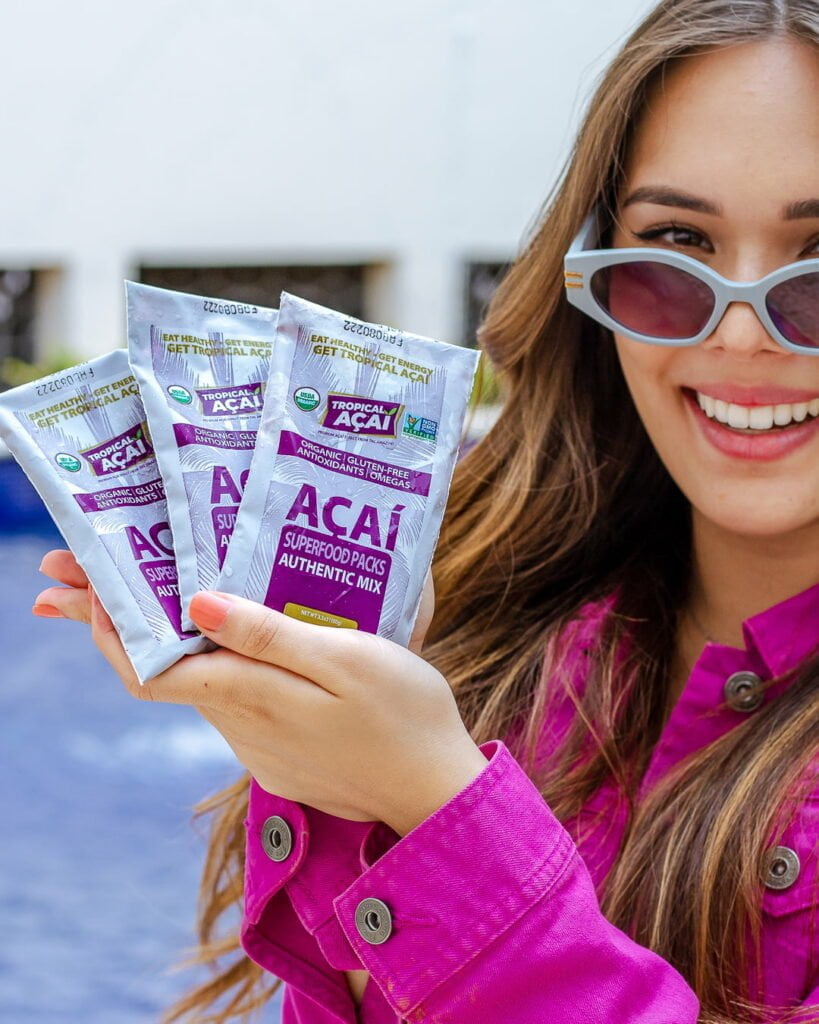
If you take acai supplements, selecting a high-quality product from a reputable source is essential. Look for third-party supplements tested for purity and potency, and avoid products that contain fillers or unnecessary additives.
By being aware of these potential side effects and considerations, you can safely and effectively incorporate antioxidants, including those found in acai berries, into your diet.
Debunking Myths and Misconceptions about Antioxidants and Acai
It’s important to understand that while antioxidants are beneficial, they are not a cure-all. A balanced diet and lifestyle are essential for maximizing their health benefits
While antioxidants and acai berries have many potential health benefits, there are also some myths and misconceptions surrounding these compounds. Here are a few common myths and the truth behind them:
The Myth of Megadoses
Some people believe that taking high doses of antioxidants, such as supplements, is more effective at preventing chronic diseases than getting them through a healthy diet. However, research has not found evidence to support the idea of “megadosing” on antioxidants. In addition, excessive consumption of antioxidant supplements can lead to adverse effects.
The Truth about Antioxidant Supplements
While antioxidant supplements can be beneficial in some cases, they are not a substitute for a healthy diet. It’s always best to get antioxidants from various whole foods, including fruits, vegetables, nuts, and seeds. Additionally, some studies have found that antioxidant supplements may not be practical or harmful to specific populations.
Separating Hype from Reality in Acai Marketing
Acai berries have gained a reputation as a “superfood,” with some marketers claiming they can cure everything from cancer to weight gain. While acai berries are nutritious and antioxidant-rich, it’s important to remember that they are not a cure-all. Additionally, many acai products, such as juices and supplements, are high in added sugars and other unhealthy ingredients.
By understanding the truth behind these myths and misconceptions, you can make informed decisions about incorporating antioxidants, including those found in acai berries, into your diet. Remember that a healthy diet rich in whole foods is always the best source of antioxidants and other essential nutrients.
Conclusion
Emphasizing the Role of Antioxidants in a Healthy Lifestyle
Antioxidants play a crucial role in maintaining overall health and preventing chronic diseases. Incorporating various antioxidant-rich foods, such as berries, leafy greens, and nuts, can support your immune system, promotebrain health, and even slow aging.
Encouraging the Inclusion of Acai and Other Antioxidant-rich Foods
Acai berries are a potent source of antioxidants, but they are just one of many antioxidant-rich foods that can benefit your health. By incorporating various foods into your diet, you can enjoy multiple health benefits and support your overall well-being.
Acknowledging that a Balanced Diet is Key to Overall Health and Wellness
While antioxidants and acai berries benefit your health, it’s important to remember that they are just one piece of the puzzle. A balanced and varied diet that includes a range of whole foods is vital to overall health and wellness.
The Importance of a Healthy Lifestyle
In addition to a healthy diet, regular exercise, stress management, and other lifestyle factors can also play a crucial role in supporting your health and preventing chronic diseases. By prioritizing a healthy lifestyle, you can feel your best and reduce your risk of a wide range of health problems.
By following these guidelines and incorporating various antioxidant-rich foods, including acai berries, into your diet, you can enjoy the many health benefits antioxidants offer. So go ahead and make healthy choices every day and reap the rewards of a healthier, happier, and more vibrant life.

